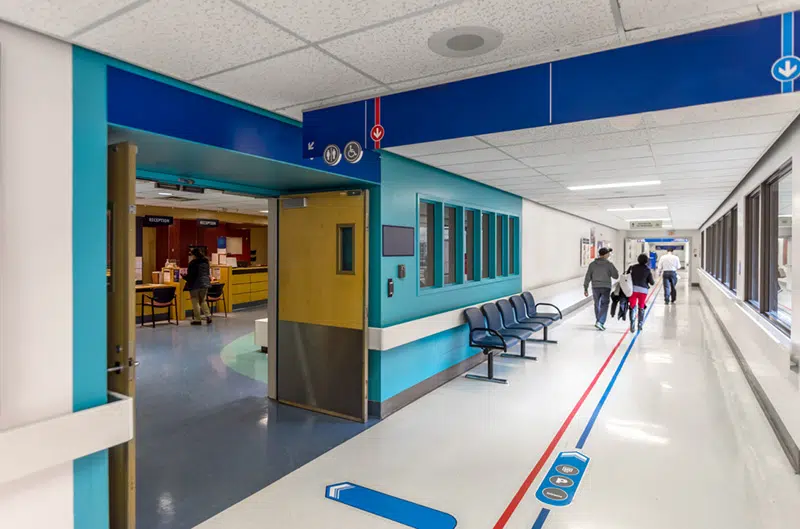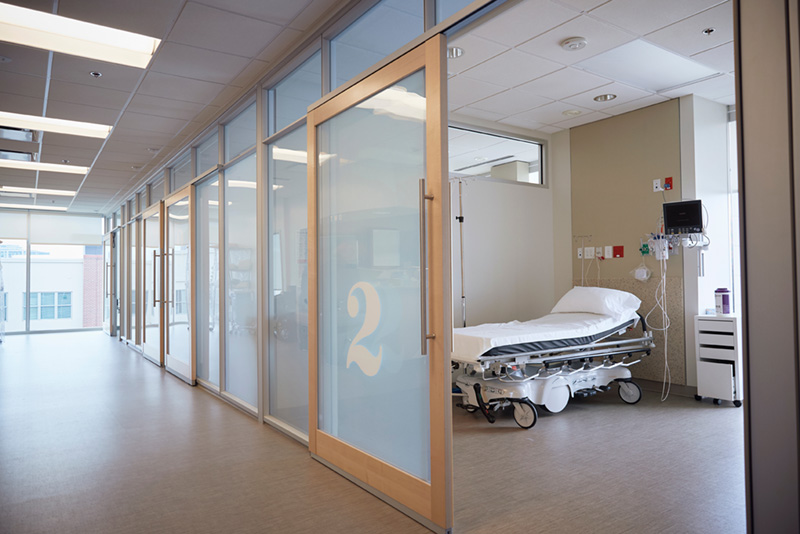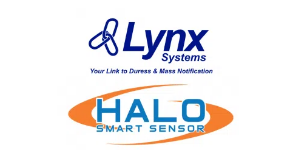
Outpatient Clinic Mass Notification Systems
Outpatient clinics deliver focused care across diverse specialties, often in campus-style layouts that prioritize patient experience over traditional security features. Protecting patients and staff in these settings requires creative solutions to blend safety with clinical workflows.
Let’s see if Lynx is a Good Fit For Your Clinic
Get started with a free demo. Contact us to schedule a time to discuss your clinic’s specific needs and learn how Lynx can enhance your existing security infrastructure.
Key Safety Considerations for Outpatient Specialty Clinics
Lynx offers advanced panic button systems and emergency communication tools that empower outpatient clinics to rapidly respond when incidents arise.

Accessible building designs with separate waiting and treatment wings

Parking lots and common areas often separate from main hospital security

Behavioral health patients integrated into general clinic populations

Specialist providers with limited emergency training

Intimate patient care settings like exam rooms and procedure suites

Disoriented patients due to sedation, dementia, or developmental disabilities

Staff working in isolated satellite offices or mobile clinics

Evacuation and personnel tracking challenges during emergencies

How Lynx Enhances Security for Outpatient Clinics
Clinical teams need safety solutions that travel with them as they roam between exam and treatment rooms. Lynx offers lightweight, water-resistant panic button devices that easily slip into lab coat pockets.
Alerts automatically route to clinic managers, behavioral response teams, on-site security staff or remote monitoring centers based on rules tailored to each outpatient specialty and location. Notifications can be sent simultaneously to computers, mobile devices, VoIP phones, and even digital signage to prompt immediate action.
Benefits of Lynx Panic Buttons in Outpatient Clinics:
- Inconspicuous activation by clinical and reception staff
- Customizable alert tones and visual cues for different emergency types
- Rapid notification of security teams patrolling across clinic campuses
- Silent alarm options for parking areas and exterior walkways
- Automated email and SMS alerts to leadership during off-hours
- Scheduled testing to ensure panic buttons are always ready
Outpatient Clinic Emergency Events Addressed by Lynx
From infection prevention to active assailant response, Lynx prepares outpatient teams to address a variety of disruptive events. The system’s scenario-based alerting allows clinics to pre-configure notifications and response workflows for common safety events.
Personnel & Patient Safety Emergencies:
Integration with Existing Clinic Security Systems
Many outpatient clinics rely on scheduling, registration and billing platforms that are distinct from main hospital systems. Lynx offers APIs and integration engines to unify these disparate data sources, providing a centralized emergency management console.
Enhance Existing Clinic Security Capabilities Without Total System Replacement
The Lynx system is designed for interoperability. It can sync with access control panels, video surveillance systems, elevator controllers, and fire alarms to provide outpatient staff with a common operating picture during complex events. Color-coded alerts and progressive communication workflows eliminate confusion when seconds count.
For example, an outpatient surgery center could link its Lynx panic button activations to both audible alarms and silent door locks. An alert from pre-op bays could automatically secure entrances to the procedure suite while sending a discreet notification to the charge nurse’s phone or nearest security officer’s radio. The result is an adaptive, layered approach to outpatient safety.


Regulatory Compliance for Outpatient Clinics
Ambulatory clinic licensure rules and CMS Conditions of Participation require detailed emergency response plans. Lynx simplifies compliance through automated testing. The system actively monitors all endpoints to ensure components are functional and sends proactive notifications when devices disconnect or batteries run low.
Lynx Training, Implementation & Clinic Adoption
Balancing patient access and staff safety requires a collaborative approach. Our Lynx implementation team partners with outpatient clinic stakeholders to conduct site assessments, outline key use case scenarios, and develop communication workflows that reflect the nuances of each specialty.
We provide customized training programs, with options for on-site sessions, virtual education, quick reference guides and simulation drills to ensure all staff can confidently use the Lynx system during stress-inducing events. Our client success team becomes an extension of your outpatient clinic, providing dedicated support through every phase of system deployment and optimization.
With 24/7 remote monitoring, regular software updates, and ongoing user training, Lynx scales with your outpatient organization. As your specialty service lines expand, our team helps extend emergency notification capabilities to new sites and personnel. The net result is a proactive safety culture, with health systems and outpatient clinics working together to protect what matters most – your patients and people.







